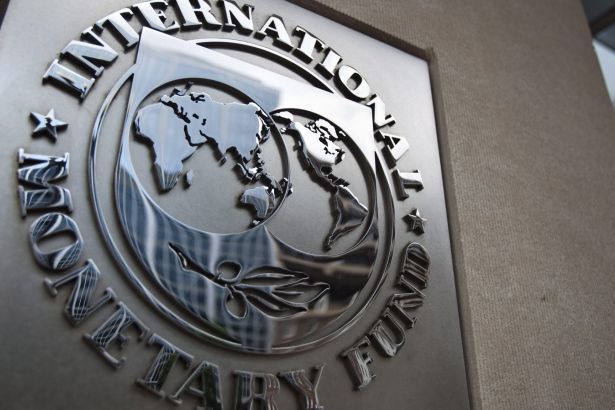IMF forms emergency team for Turkey

A team in Washington, DC, within the body of the International Monetary Fund (IMF), has started to work on a scenario of precautions in case Turkey might apply to the IMF, Die Welt Turkish reported citing unnamed sources close to the fund.
A source who did not wish to be named but was close to the IMF authorities pointed out that the "devaluation of Turkish Lira was dramatic".
The source said: "Because of that, the IMF has been having a hard time, and an emergency team has been formed within the IMF for the possibility that there might be a capital escape from Turkey."
Another source that is close to the IMF also stated that, regarding the risks in the global environment, the IMF, who takes into account the post-election political risks due to the fragilities in Turkey’s economy, was preparing for a double-scenario future.
"The IMF works on what could happen in the economy in case a political fragility is added to Turkey’s economic fragility," the second source said, and maintained: "They are working on scenarios where a political scenery after the elections on June 24 might induce a debt-discharging crisis."
Sources close to the IMF also mentioned that the Fund has been scrutinising many issues such as whether there would be a fiscal tightening after the election, whether any precautions would be taken regarding the public expanses, the independency of the Central Bank, any possible interest rate hikes, expectations of economic shrinkage in the 2nd half of the year, and the situation of banks.
The IMF Spokesperson said in their commentary on the issue: "Just as for every country, we have a permanent team working on Turkey, and we are in contact with the authorities as a part of our monitoring process. Our views on Turkey was projected upon the 4th Assessment Report issued recently. We have not been notified by the Turkish authorities that indicates that they intended to demand financial support."
In the 4th Assessment Report, it was highlighted that Turkey’s economy signalled heating up, and the monetary policies were loose and with low reliability.
The IMF Spokesperson also commented on the interest rate hike of the Central Bank of Turkey (TCMB): “We take kindly the announcement of the precautions regarding the tightening of monetary policies, and we support the authorities to be restrained. Policies, with the right timing, must continue to aim to support the macroeconomic stability and to reduce imbalances.”
On the other hand, Timothy Ash, a strategist of Bluebay Asset Management, referred to Turkey’s expected application to the IMF as an “optimal anchor”, and said: "An IMF programme may be supportive from the aspect of the balance of payments, which is the key fragility of the country."
Ash also stated that Turkey’s current President Recep Tayyip Erdoğan had attained the success in his first years thanks to the programme he had inherited from the IMF.
Argentina, whose local currency Peso decreased nearly 25% in value this year, had signed a 3-year stand-by contract with the IMF in return for a $50-billion debt.
The sources stated that, after Argentina, Turkey would come to the table, as well.



